by: Robby Myers
Howdy, ya’ll!
Let me introduce myself. My name is Robby Myers, and I intend to make a weekly blog to spread my knowledge with other fishermen, and possibly learn from you as well. I have a lifetime of experience to share. I have been lucky enough to have had a master fisherman (my dad) as a mentor along the way, so what I have to share is a combination of two lifetimes. His knowledge begins in the era of the legendary Rudy Grigar in the early 1970s and well before then. Hopefully, these articles will be entertaining and beneficial to you whether you are a beginner or an expert fisherman.
My experience includes guide services for 24 years to hunters and fishermen alike all over the United States and Mexico. One thing I have learned for sure is we are never too old to stop learning. That said, let’s dive right in and get going fishing.
Get ready to embark on a journey through the world of fishing with insights from a seasoned angler who shares a lifetime of experience. Drawing from the wisdom passed down by a master fisherman, these articles offer a unique blend of traditional techniques and modern insights. Whether you’re just starting out or consider yourself an expert, dive into topics covering the behavior of fish, from their responses to weather conditions to the significance of food sources, cover, tide movement, and solunar tables. Join us as we explore the intricacies of fishing and uncover the keys to success on the water. Discover the importance of understanding fish behavior and its impact on locating and catching fish. From weather conditions to food sources, cover, tide movement, and solunar tables, explore the key factors influencing fishing success. Whether you’re a beginner or an expert, these insights will enhance your fishing experience and lead to more fruitful outings.
This week’s topic is going to cover part of how and why fish universally do the things they do. Understanding their behavior is winning the battle with locating and the timing of catching fish. Any failure of catching fish is usually due to the attention to, or omission of one or more variables.
Fish behavior is related primarily to;
1. Weather conditions (barometric pressure, temperature, wind, etc.)
2. Food sources
3. Cover (depth changes, physical features)
4. Tide movement
5. Solunar tables
Let’s start with the weather conditions, i.e. barometric pressure. Barometric pressure can be complicated as to when to fish. Pressure changes are due to fronts, and changes in weather patterns. Optimally, the steady mid-range between 29 and 30 is best. Large changes and abrupt rises and falls are usually not great due to fish trying to adjust to the pressure. Higher pressure stabilized can be good as well due to more activity. Low pressure seems to subdue fish activity due to cooler temperatures.
Temperatures on a large scale throughout the year make fish move in seasonal changes. For example, fish coming out of winter into spring can move fish to oyster beds and areas closer to deeper water. Ultimately, a water temperature of 65 degrees or more triggers a movement towards jetties and surf fishing. Black and red drums are some of the first to move to the surf to spawn.
Wind can be a factor in tide movement and pushing baitfish to one shoreline or another. Wind affects fishermen more than the fish. The fish are still there, but a strong wind can be very hard to fish, and at extremes is dangerous. Good fishing can be done in high heat, cold, rain, and most other conditions, but a strong wind is usually a deterrent to fishing.
Overall, the weather conditions can be a factor but not as important as the other topics in optimizing your fishing trip. Next week we can focus on food sources.
Thanks for reading my blog. I look forward to covering other topics and am open to any suggestions or questions.








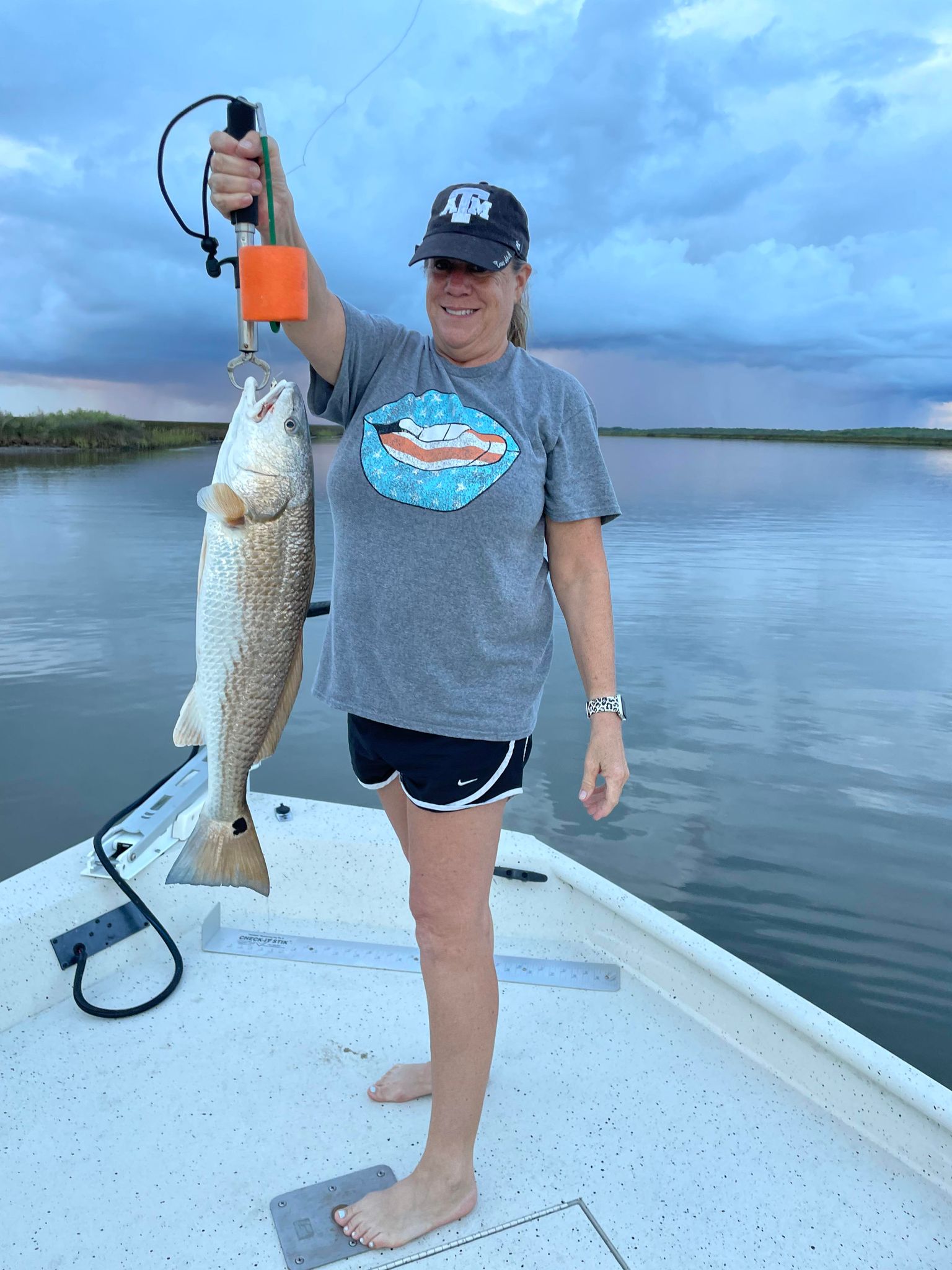
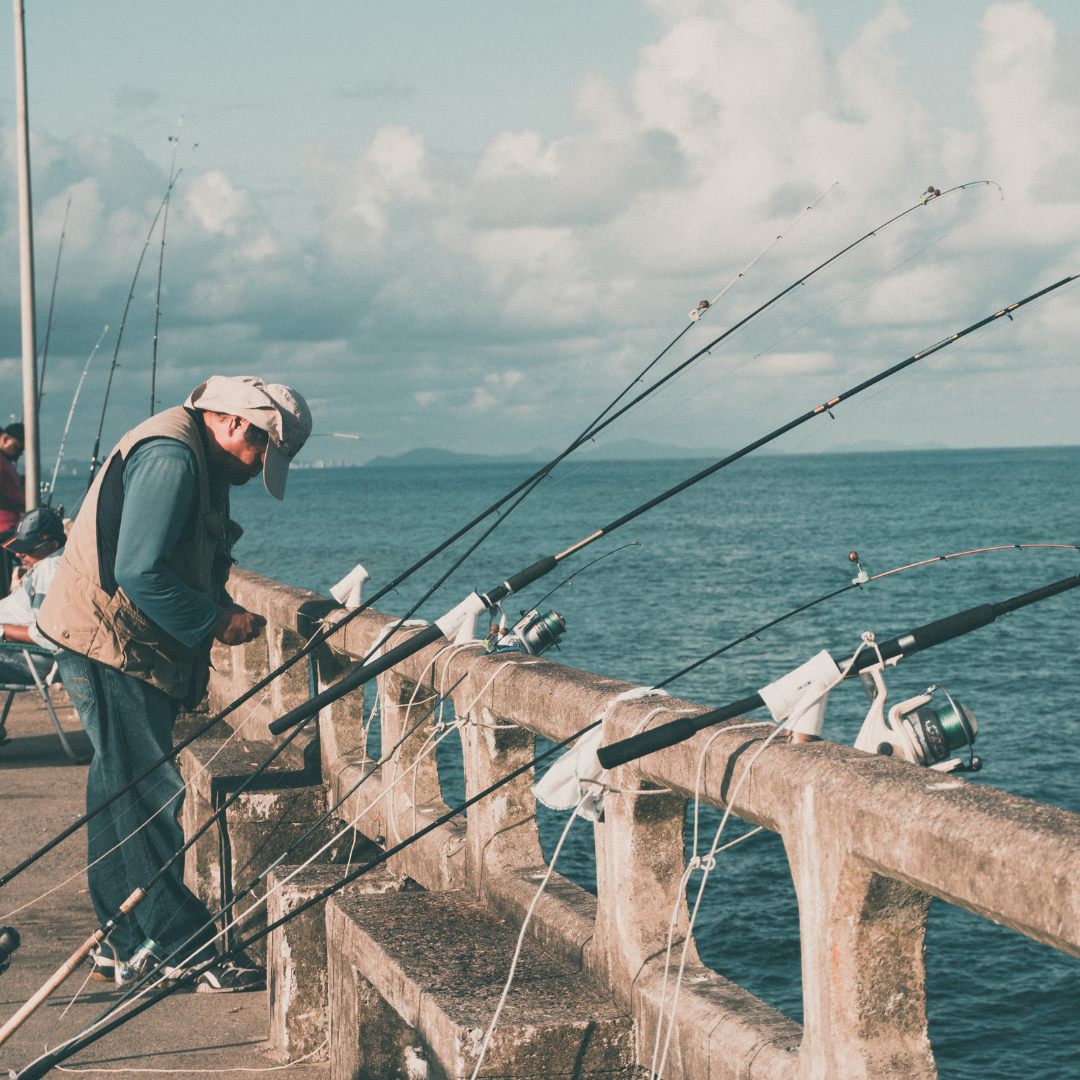
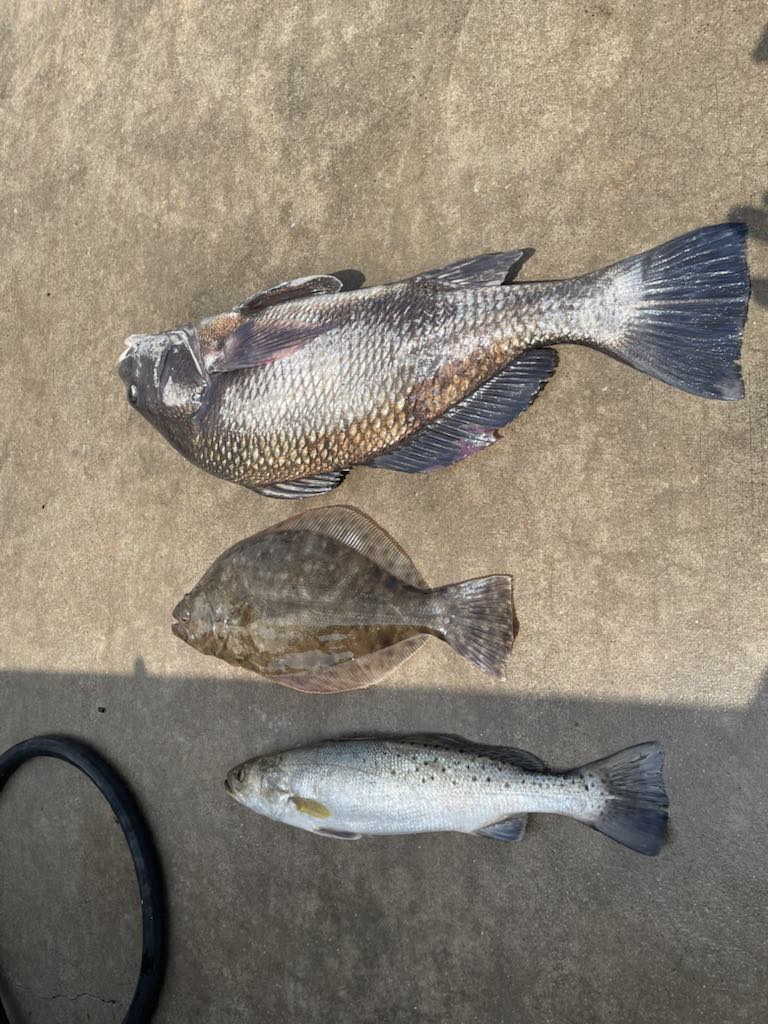
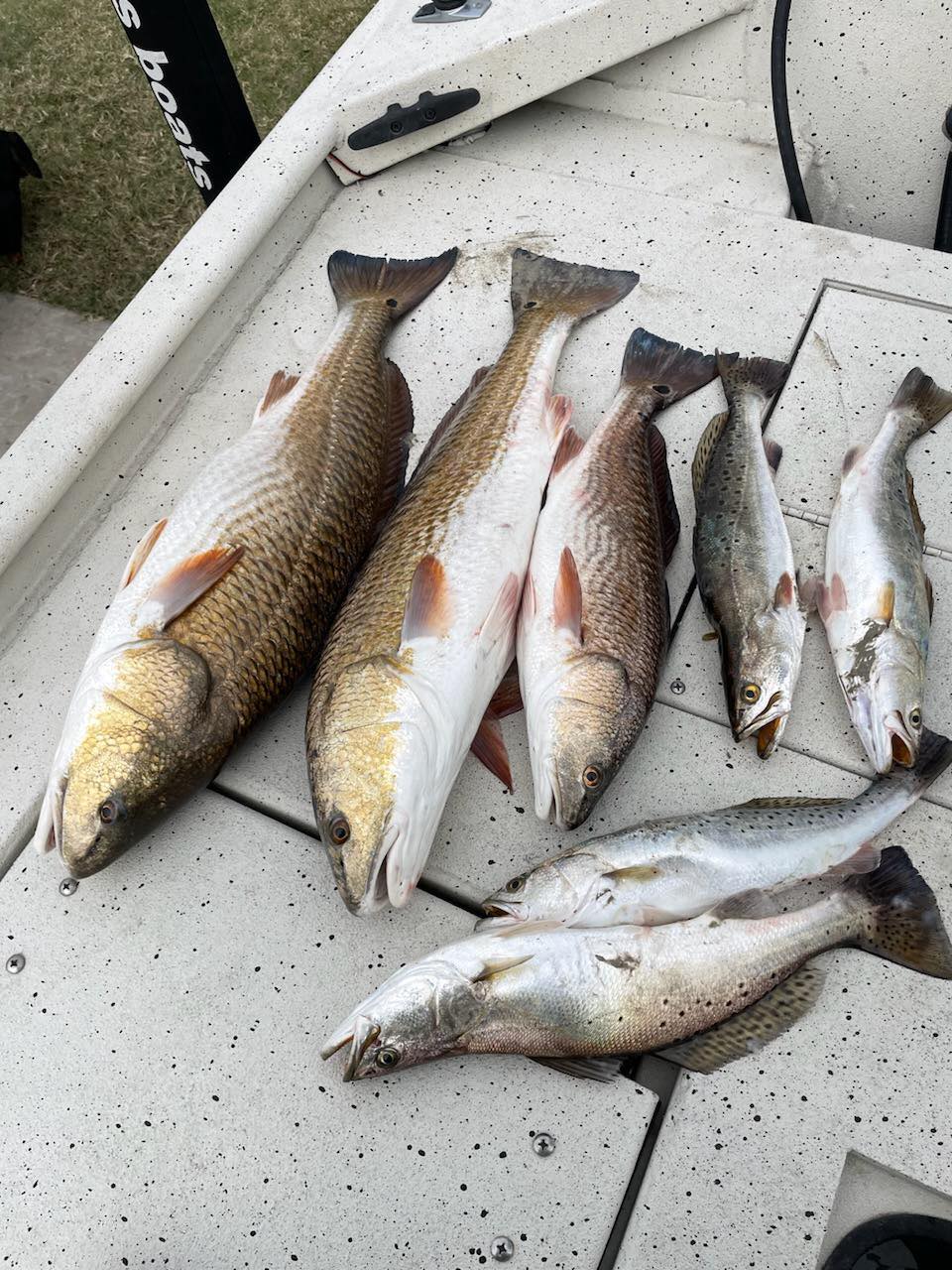
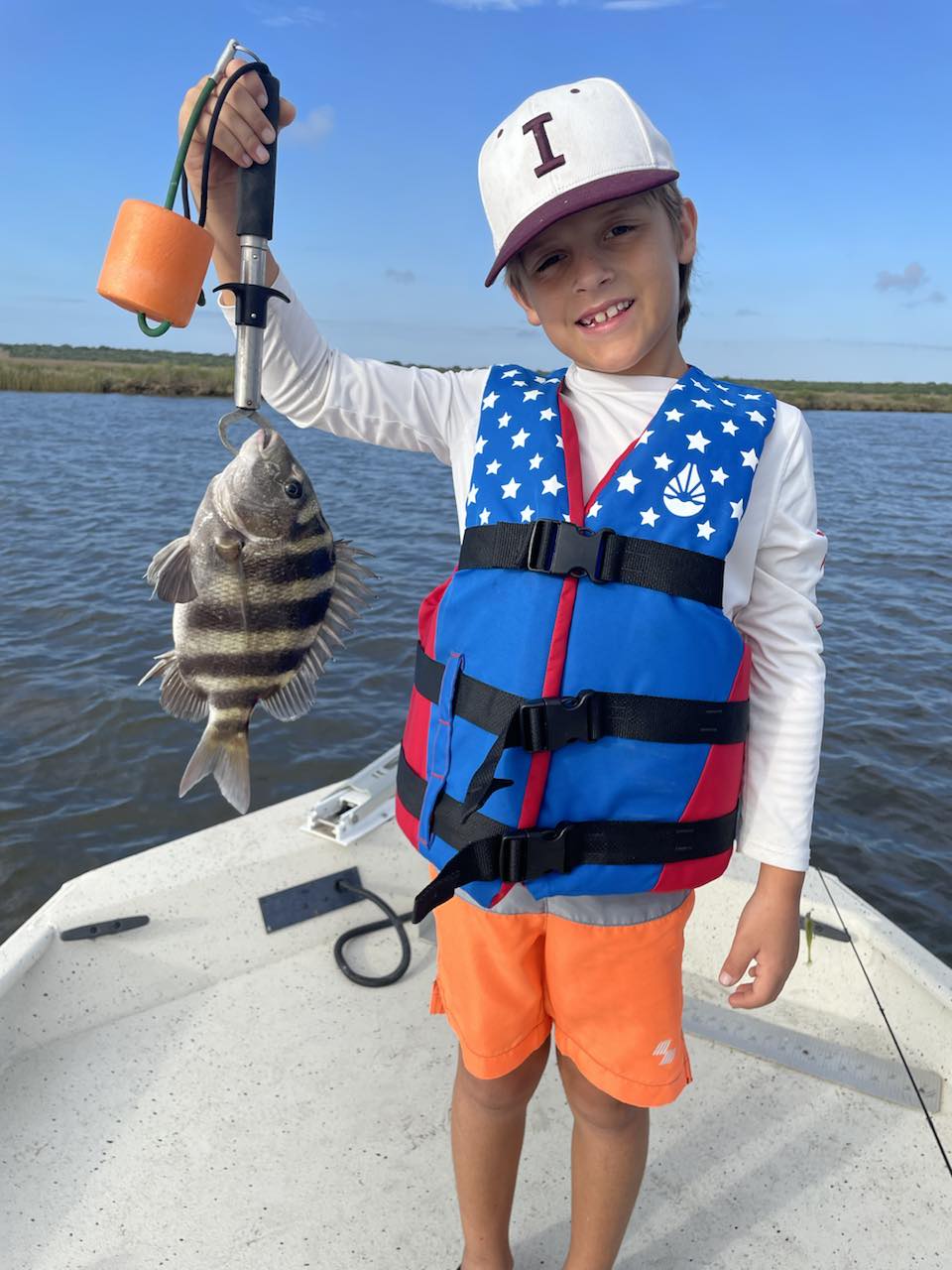
I’ve only been saltwater fishing once but I had a blast. I didn’t catch anything, lol, but this article should help with my next attempt.